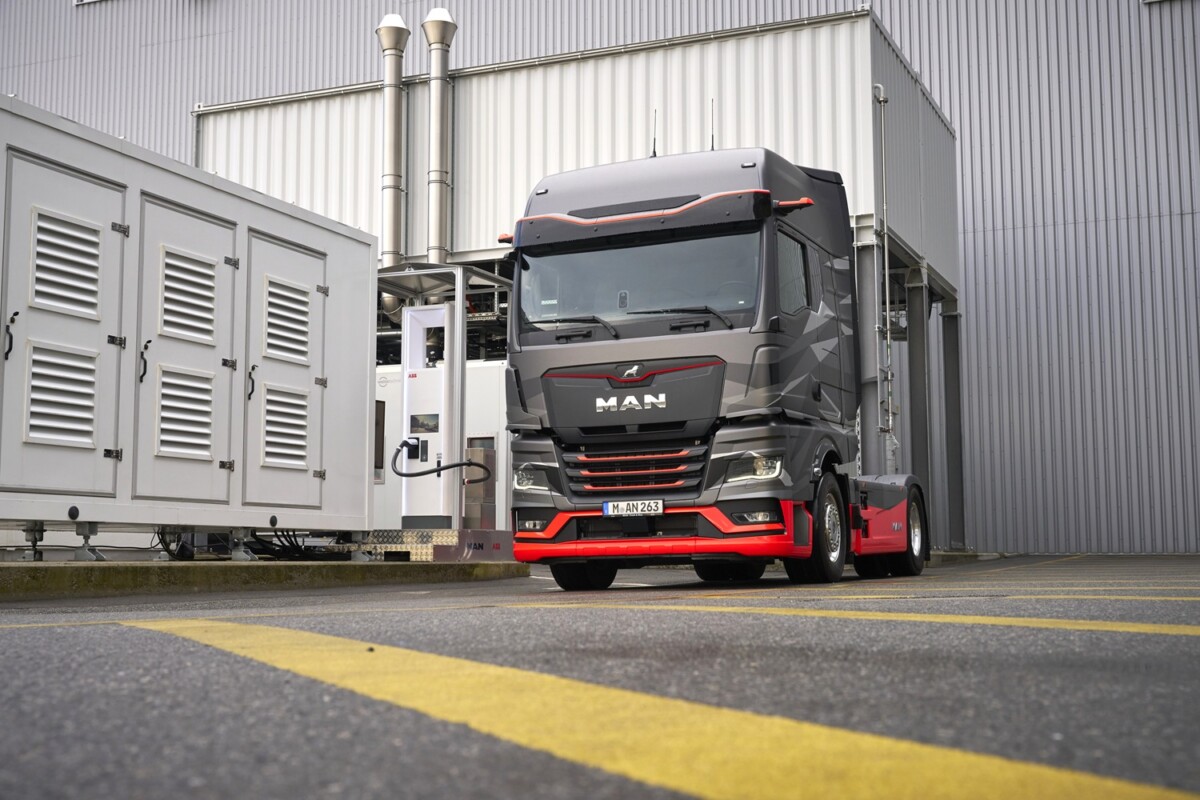The first megawatt charger developed for trucks has recently been officially delivered. The ceremony was also attended by the Prime Minister of Bavaria, Markus Söder, in addition to the leaders of ABB, which developed the charger, and MAN, which presented a vehicle suitable for charging.
High-performance charging for electric trucks has been on the table for some time. First of all, the technology itself had to be developed, then came standardization, and then the next step, the delivery of the first charger of this type. Although the main 'flagbearer' for this technology is the TRATON group, including two well-known commercial vehicle manufacturers, MAN and Scania, the electric tractor unit from Mercedes-Benz, the eActros 600, introduced last year, is also suitable for megawatt charging (MCS). In other words, we could see the development of a charging network that goes beyond brands in the coming years.
But how much is this? “The aim is to have 30,000 MCS charging points across Europe by the end of the decade, of which at least four thousand will be available in Germany. Electric trucks are now available and megawatts are charging and running. We now need clear signals from politicians, especially in order to build Confidence among users in the direction of electrification.We need to build and expand infrastructure quicklyAlexander Vlaskamp, General Manager of MAN Truck&Bus, drew attention to the delivery process.
Markus Söder, Alexander Vlaskamp, and Michael Halper, CEO, ABB E-Mobility.
The first megawatt charger has been commissioned at MAN's development center in Munich. The testing was carried out on an eTGX tractor (what MAN calls an eTruck) with over 700 watts and 1000 amps of power. However, technically, these chargers can – on a theoretical level, be able to provide up to 3.75 mW and 3,000 amps of charging power, according to MAN and ABB.
This could be a big step forward considering that CCS chargers currently reach 400 kilowatts and 500 amps for e-cars and trucks. However, the truth is that MCS charging consumes a lot of power. That is why serious network development and digitalization are required.
Currently, e-trucks are viewed by everyone in professional circles as being able to participate in the fulfillment of regional distribution and transportation tasks. However, it is not yet suitable for long-distance and international freight transportation due to its limited range. Megawatt charging will be able to change these principles, as it allows a maximum of short time. Fully charge your e-tractor batteries in 30-45 minutes. In other words, by including intermediate charging, the daily mileage can be doubled. How widespread this solution will be in logistics is still a big question for the future.










































